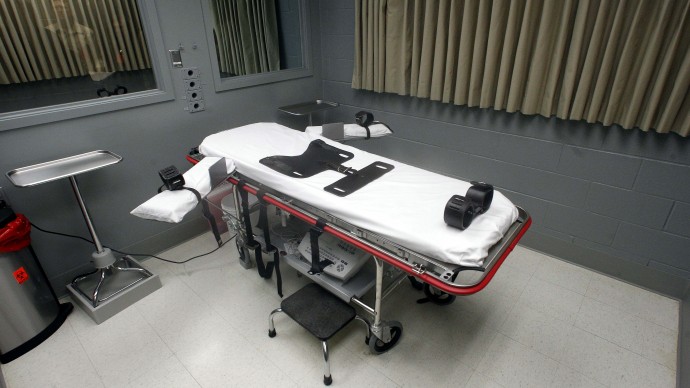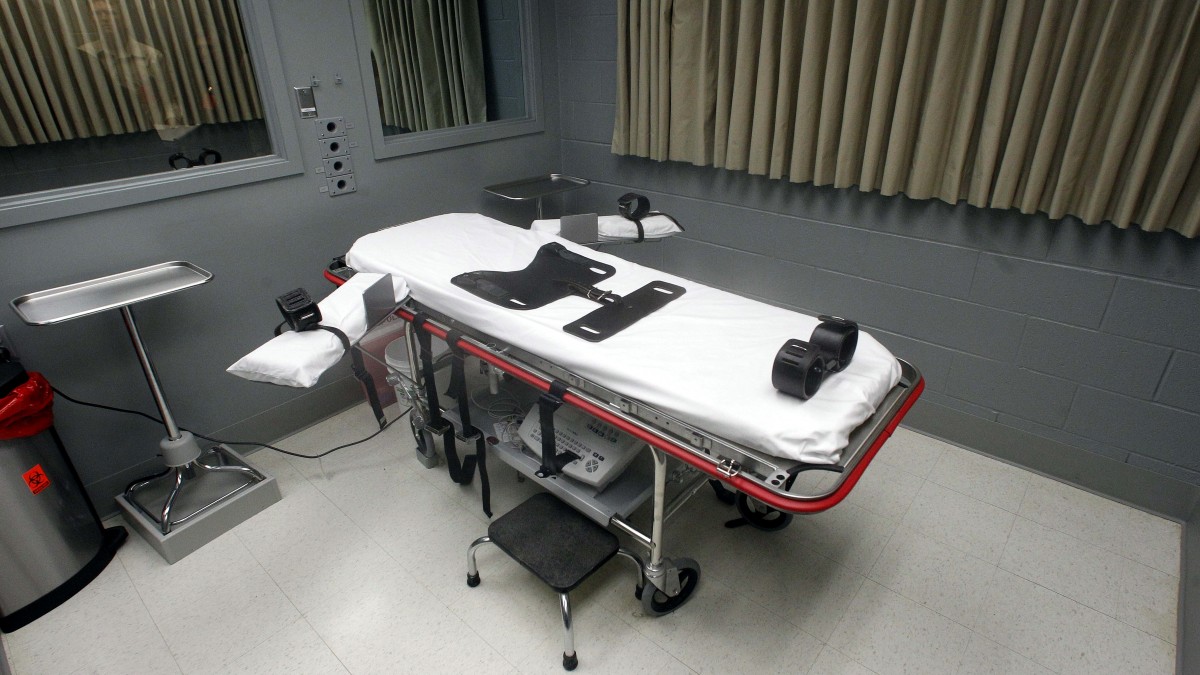
(MintPress)-Amnesty International released its annual Death Sentences and Executions report on Tuesday, once again proving that the United States is a global leader, not in protecting human rights, but in violating them. The United State ranked 5th among countries with the most executions in 2011, following China, Iran, Saudi Arabia, and Iraq.
At least 20 countries were known to have carried out executions in 2011, a decline from 23 countries in 2010. Despite this reduction, the number of known executions carried out worldwide increased from 527 to 676 last year. The 676 figure does not include the thousands of people who were believed to have been executed in China in 2011.
The United States, which prides itself as a leader of democracy and human rights promotion worldwide, was responsible for 43 executions in 2011. The United States had more reported executions than several countries routinely suspect to human rights criticism from the U.S. including Yemen (41), Sudan (7), and Egypt (1+). The United States executed more prisoners in 2011 than North Korea (30) and Somalia (10) combined.
In 2011, there were at least 360 executions in Iran, at least 82 in Saudi Arabia, and at least 68 in Iraq – all significant increases from 2010. Of the 360 reported executions in Iran, at least three were of juvenile offenders under the age of 18, with four additional unconfirmed juvenile executions.
Although the United States does not allow the death penalty for juvenile offenders, there have been 2,500 Americans reportedly sentenced to life without parole for crimes committed during their adolescent years.
In 2011, at least 1,923 people were given death sentences worldwide, increasing the overall number of those on death row to 18,750. The United States was the only country in the Americas and the only member of the G8 to execute the death penalty last year.
“The vast majority of countries have moved away from using the death penalty,” said Salil Shetty, Amnesty’s secretary-general. “Our message to the leaders of the isolated minority of countries that continue to execute is clear: you are out of step with the rest of the world on this issue and it is time you took steps to end this most cruel, inhuman and degrading punishment.”
Troy Davis: Executing the Wrongly Convicted
Among those executed in the United States in 2011 was Troy Davis, who was executed on September 21 despite repeated pleas for an evidentiary hearing from Amnesty International, NAACP, and prominent leaders like former President Jimmy Carter and Pope Benedict XVI.
Davis was convicted of the 1989 murder of police officer Mark MacPhail in Savannah, Georgia. Davis continued to plead his innocence even after being sentenced to the death penalty in 1991 up until his death.
Davis’ execution was halted three times since 2007. The defense pushed for a retrial based on evidence that all but two of the state’s non-police witnesses had allegedly recanted or contradicted their testimonies, several of whom stated in sworn affidavits that they were pressured or coerced by police into testifying or signing statements against Davis.
Despite Davis’ appeals, the courts upheld the prosecution, stating that the defense was not able to “clearly establish” Davis’ innocence, even though establishing innocence is a more difficult task than the prosecutor’s task of proving guilt.
Davis is one of many believed to have been wrongly executed in the United States. Since 1973, 140 people have been released from death rows throughout the country due to evidence of their wrongful conviction. In this same time period, more than 1,200 people have been executed in the US.
Among the factors leading to wrongful convictions in the U.S. include racial profiling, which some believe is exemplified in the Davis case. Since 1977, 77% of death row defendants have been executed for killing white victims, even though African-Americans make up about half of all homicide victims.
A 2007 report sponsored by the American Bar Association found that one-third of African-American death row inmates in Philadelphia would have received life imprisonment sentences instead had they not been African-American.
Since the US Supreme Court reinstated the death penalty in 1976, 82% of all executions have taken place in the South (37% in Texas alone)
According to former Senator Russ Feingold, “We simply cannot say we live in a country that offers equal justice to all Americans when racial disparities plague the system by which our society imposes the ultimate punishment.”
Status of Abolition in US
Despite flaws in the U.S. justice system, Amnesty’s U.S. director, Suzanne Nossel, reported that significant progress has been made to lower the number of executions as well as death sentences handed out in America. 78 people were sentenced to death in 2011 compared to an average of 280 a year in the 1980s.
A recent Gallup poll shows that the popularity of the death penalty is also on the decline. The percentage of Americans that support the death penalty is at its lowest since 1972. Although 61% of Americans are in favor of the death penalty, 35% are opposed.
A 2010 study by the death penalty information center shows that even though Americans favor the death penalty, over half the public prefers an alternative to the death penalty as the best form of punishment for a crime of murder
In 2011, Illinois became the 16th state to abolish the death penalty. Governor Pat Quinn said upon signing the bill to abolish the death penalty last March: “I have concluded that our system of imposing the death penalty is inherently flawed…it is impossible to devise a system that is consistent, that is free of discrimination on the basis of race, geography or economic circumstance, and that always gets it right.”
In November the Governor of Oregon, John Kitzhaber, announced that he would not allow any further executions in that state during his time in office. Governor Kitzhaber put a moratorium on all executions and encouraged Oregonians to “engage in the long overdue debate” about “an expensive and unworkable system that fails to meet basic standards of justice.”
Capital punishment is still legal in 34 states, practiced primarily in the South. Over the past 30 years, 82% of all executions have taken place in the South, and only 1% have taken place in the Northeast. Even if a state has abolished the death penalty, the federal death penalty can still be enacted. Currently, there are 58 people on federal death row.
Nearly 30 executions are scheduled thus for far the next year, including two executions this week, one in Texas on Wednesday, and another in Alabama on Thursday.
Source: MintPress


